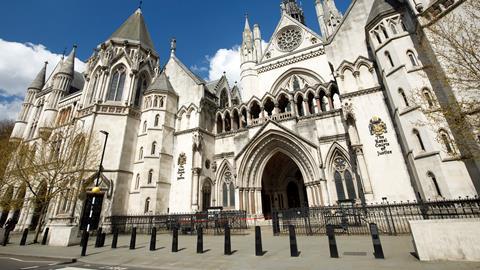A £5bn claim against mining giant BHP over Brazil’s worst environmental disaster has been revived by the Court of Appeal in what the claimants’ lawyers described as a ‘monumental judgment’.
More than 200,000 Brazilian citizens, hundreds of businesses and 25 municipal authorities are suing BHP Group (UK) Limited – previously BHP Group plc – and an associated Australian company, BHP Group Limited, over the 2015 collapse of the Fundao dam in Mariana, southeast Brazil.
The disaster killed 19 people, destroyed entire villages and released millions of cubic metres of toxic waste – some of which was found hundreds of miles away.
The claim was brought on the basis that the overseas-registered defendant is liable under Brazilian environment law as an ‘indirect’ polluter, as well as under the Brazilian civil code and for alleged breach of duty under Brazilian corporate law, which is denied.
BHP applied to strike out the claims as ‘pointless and wasteful’, arguing that the claimants could obtain redress from other parties in Brazil. In November 2020, Mr Justice Turner granted BHP’s application as the case was a ‘clear abuse of process’. The judge also said the claim would be ‘irredeemably unmanageable if allowed to proceed any further in this jurisdiction’.
The claimants’ application for permission to appeal was refused, first by Turner and then by Lord Justice Coulson on the papers, before the Court of Appeal granted permission last year. BHP now face what the claimants’ lawyers said is ‘the largest-ever litigation in England’ after the Court of Appeal today ruled that the case should go ahead.
‘The claims in this action are already three years old and the only reason they have not substantively progressed is the delay caused by the applications which have been made by the defendants,’ Lord Justice Underhill, Lord Justice Popplewell and Lady Justice Carr said in their ruling.
BHP argued at a hearing in April that the Fundao dam was owned by Samarco – a joint venture owned 50/50 by BHP Brasil and Vale – and also that a compensation scheme called Renova, which is supervised by the Brazilian federal court, has already paid compensation to around 100,000 of the claimants.
The Court of Appeal said that ‘we recognise fully the efforts being made in the Brazilian courts to resolve the question of compensation for those who have suffered as a result of the catastrophe’, but added: ‘Our conclusion is simply that the remedies available in Brazil are not so obviously adequate that it can be said to be pointless and wasteful to pursue proceedings in this country.’
‘There is a realistic prospect of a trial yielding a real and legitimate advantage for the claimants such as to outweigh the disadvantages for the parties in terms of expense and the wider public interest in terms of court resources,’ the court ruled. ‘The appeal against the judge’s order to strike out, alternatively stay, the proceedings for abuse of process must be allowed.’
Tom Goodhead, managing partner at PGMBM which is representing the claimants, said: ‘This is a monumental judgment that means the victims of the worst environmental disaster ever seen in Brazil are a step closer to justice.
‘This is a huge step forward in not only securing justice for our clients but also sending a wider message to large multinational businesses that they cannot run major operations in countries around the world – and then hide behind their subsidiaries when things go wrong. It is time that BHP stop delaying justice and do the do the right thing.’
BHP said in a statement that it is ‘considering whether to seek permission to appeal the judgment to the UK Supreme Court’ and emphasised that the ruling ‘is not a decision in relation to the merits of the claims made in the group action’.
It added: ‘BHP will continue to defend the UK group action, which BHP believes is unnecessary because it duplicates matters already covered by the existing and ongoing work of the Renova Foundation and legal proceedings in Brazil.’




























5 Readers' comments